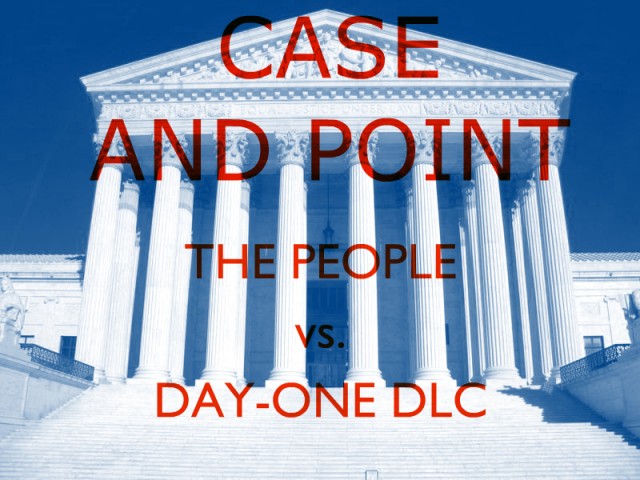
Contributed By: Jordan Mallory
Freelance Gaming Journalist
http://omnomnews.blogspot.com
@Scatterheart_
DLC, as a concept, is fantastic. I love that when I finally get around to finishing Mass Effect 2, there will be more Mass Effect 2 for me to devour. That makes my initial purchase more valuable, despite the fact that I have to purchase the DLC as well. It’s great for Developers too; DLC is an excellent way to be good to your established fanbase, and by expanding your existing universes, you help ensure that your players stay engaged in the worlds you’ve created. It’s support, and the tech industry has always shown us that products with post-launch support are more successful than products without. Case closed then, right? Hooray for DLC.
Well, almost. When Microsoft released Mech Assault in 2002, they figured out that people would pay real cash money for extra content. This made things a little more complicated.
Originally, DLC was something developers would work on in post-production; after the game itself had been completed, additional budget and development cycles would be spent on creating new content for digital distribution. This worked well; you’d buy a game, finish it, and weeks or months later DLC would be released. Suddenly, that game you’d already forgotten about was new and exciting again. Sweet! Once gamers were comfortable with the idea of microtransactions, DLC blossomed into an extremely profitable business. We couldn’t stay in Even forever, though; publishers soon realized that profits could be increased if DLC was available on release day.
Now, Day-One DLC is a good idea, but in practice it does more harm than good. In order for DLC to be ready on launch day, it has to be developed concurrently with on-disc content. This means that developers have to split their development cycles and spend time creating supplementary content, when they would otherwise be polishing essential content. That makes the product suffer. In a world where single player experiences are uniformly cast to the wayside and multiplayer modes receive the majority of development time, we can’t afford to spend any less time on the actual product. Granted, there will always be exceptions like Alan Wake and the Mass Effect series, but most developers aren’t BioWare or Remedy Entertainment.
The situation is even more dire for smaller developers with smaller budgets. If they can’t afford to spend development cycles on new, exclusive DLC content, content will actually be removed from the game and turned into DLC. If day-one DLC is available for a non-mega-blockbuster title, chances are it was originally going to be included in the game proper. In some cases, the DLC you buy isn’t DLC at all, but rather a code that unlocks content that’s already on the disc.

EA’s latest entry into the Tiger Woods PGA Tour series is a perfect example of what’s wrong with this system. The 360 and PS3 versions come with 16 courses on the disc, and 20 additional courses available as DLC over Xbox Live and the PSN. This all sounds fine, until you realize that the game’s Career mode cannot be 100% completed without purchasing some of the DLC courses. Fees have been incorporated into the main single-player mode that you already bought, and it’s deplorable. What’s worse, the Wii version of the game has no DLC, and comes with all 25 required courses. It is a finished, whole product. Why? Why did they remove content from the 360 and PS3 versions and make it into DLC? Sadly, because they can.
Imagine what would happen if AMC announced that every episode of next season’s Mad Men would be half the normal length, and that the rest would be available online for an additional fee. People would riot in the streets. The gaming industry is the only industry that can pull this off; no one seems to notice how royally they’re being ripped off.
When a publisher announces day-one DLC for an upcoming title, dig a little deeper. Why aren’t these maps on the disc? Why aren’t these costumes already unlockable? Put some thought into it, do some research, and don’t let yourself be taken advantage of. If you stop buying day-one DLC, publishers will stop neutering products to make it. I don’t mind paying for DLC. In fact, I’d go so far as to say that I actually enjoy paying for DLC when it’s a beneficial addition to a product I’ve already enjoyed. Day-one DLC, on the other hand, is practically theft.


1 Comment